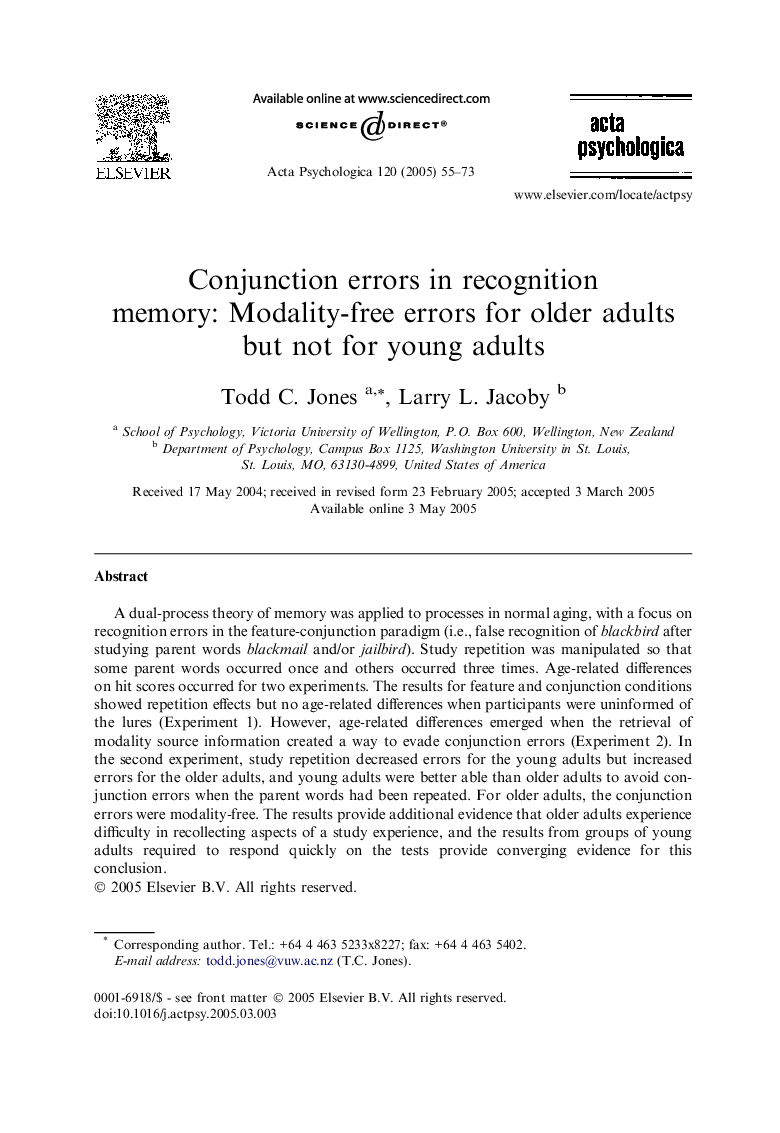| Article ID | Journal | Published Year | Pages | File Type |
|---|---|---|---|---|
| 10453959 | Acta Psychologica | 2005 | 19 Pages |
Abstract
A dual-process theory of memory was applied to processes in normal aging, with a focus on recognition errors in the feature-conjunction paradigm (i.e., false recognition of blackbird after studying parent words blackmail and/or jailbird). Study repetition was manipulated so that some parent words occurred once and others occurred three times. Age-related differences on hit scores occurred for two experiments. The results for feature and conjunction conditions showed repetition effects but no age-related differences when participants were uninformed of the lures (Experiment 1). However, age-related differences emerged when the retrieval of modality source information created a way to evade conjunction errors (Experiment 2). In the second experiment, study repetition decreased errors for the young adults but increased errors for the older adults, and young adults were better able than older adults to avoid conjunction errors when the parent words had been repeated. For older adults, the conjunction errors were modality-free. The results provide additional evidence that older adults experience difficulty in recollecting aspects of a study experience, and the results from groups of young adults required to respond quickly on the tests provide converging evidence for this conclusion.
Related Topics
Life Sciences
Neuroscience
Cognitive Neuroscience
Authors
Todd C. Jones, Larry L. Jacoby,
